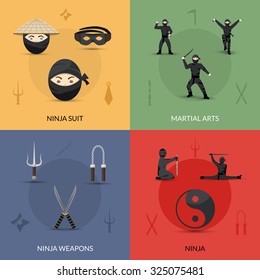A Relative Research Of Traditional Martial Arts And Modern Combat Sports: Highlighting The Vital Differences
A Relative Research Of Traditional Martial Arts And Modern Combat Sports: Highlighting The Vital Differences
Blog Article
Team Author-Keith Johnson
When you consider martial arts, do you lean a lot more towards the traditional techniques or the modern-day fight sports? Each course uses unique advantages and experiences, formed by their approaches and training approaches. Traditional martial arts stress personal development and discipline, while modern-day battle sporting activities focus on competitors and performance. Recognizing these differences can direct you in picking the appropriate method for your journey. However exactly how do these differences show up in training and philosophy?
The Approach and Background Behind Conventional Martial arts
While many people link martial arts with physical combat, the viewpoint and background behind typical martial arts run much deeper. martial arts and child development 'll locate that these disciplines emphasize personal growth, technique, and respect.
Stemming from old practices, typical martial arts were commonly created for Self-Defense and spiritual advancement. They symbolize concepts such as balance, harmony, and self-discipline, assisting professionals past mere fighting abilities.
As you educate, you'll not just discover strategies but also get understandings into the culture and worths that shaped these arts. The rituals and practices, usually passed down via generations, promote a feeling of neighborhood and belonging.
The Affordable Nature of Modern Combat Sports
Modern battle sporting activities have actually transformed the landscape of martial arts right into a very competitive field, where professional athletes take on in an examination of skill, technique, and endurance.
You'll notice that competitors are typically organized with strict rules and policies, guaranteeing justice and security. These occasions draw in big audiences, sustaining the excitement and strength of competitions.
Athletes train carefully, not just for physical expertise yet likewise for psychological strength, recognizing that every information counts in the ring. The adrenaline rush throughout competitions is palpable, as fighters press their limitations to claim success.
Fans appreciate the athleticism and virtuosity entailed, making modern-day battle sporting activities a thrilling phenomenon that continues to advance and mesmerize enthusiasts all over the world.
Training Techniques and Strategies: A Comparative Analysis
The competitive ambience of contemporary battle sporting activities demands cutting-edge training techniques that vary significantly from typical martial arts.
In modern-day training, you'll focus on certain strategies, competing, and conditioning, typically using drills that mimic real fight circumstances. You'll see an emphasis on quantifiable efficiency and frequent competition to analyze your abilities.
In contrast, conventional martial arts prioritize forms, katas, and thoughtful trainings, commonly stressing discipline and regard over competitors.
Training is typically much less intense and may involve recurring technique rather than real-time sparring.
While both strategies develop skill and fitness, contemporary fight sporting activities offer a much more vibrant and versatile training environment, preparing you for instant obstacles in the ring or cage.
https://docs.google.com/spreadsheets/d/1fJVzH_NzIvfIa9ojcNdL3V-VZjUMpHZHUsFsP6Q1a-c/edit#gid=639740252 that straightens with your goals and interests.
Final thought
In selecting between standard martial arts and contemporary fight sports, it actually boils down to what you value the majority of. If you're trying to find personal development, technique, and a sense of area, traditional arts may be your ideal fit. Yet if you thrive on competition and real-time obstacles, modern-day fight sporting activities could be the method to go. Ultimately, both paths offer unique benefits, so it's all about straightening your training with your individual goals and passions.
